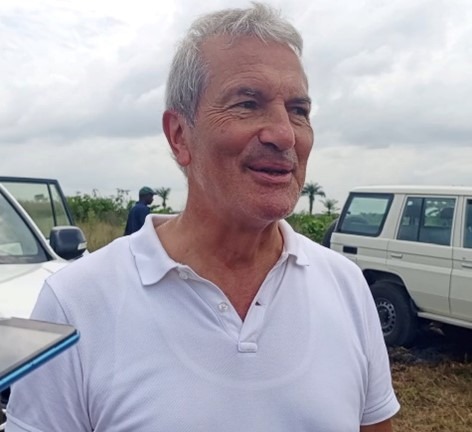The dismal performance of the Liberian economy can be largely attributed to its high dependency on imports, a situation that has raised concerns from various stakeholders, including the German Ambassador to Liberia, Dr. Jakob Haselhuber. During a recent visit to Margibi County, the Ambassador expressed his astonishment at the extent of this reliance on imported goods, observing as he frequented local markets that most of the products available to consumers originate from outside the country. This import reliance not only hinders local economic growth but also exacerbates the outflow of resources, as salaries and taxes related to these imported goods are paid abroad. Such trends are particularly detrimental for Liberia, which possesses ample fertile land that could be cultivated to support local production and reduce reliance on imports.
Ambassador Haselhuber’s remarks serve to illuminate a broader issue facing Liberia, wherein the heavy importation of goods, ranging from essential commodities to staples such as rice, heavily burdens the national economy. Despite Liberia being rich in agricultural potential, the government and the citizens continue to expend millions of dollars each year on importing rice, one of their fundamental dietary staples. This paradox highlights the disconnection between Liberia’s agricultural capabilities and the economic decisions being made, fostering conditions that impede the country’s self-sufficiency and agricultural development. The Ambassador’s insights reflect a growing frustration pointed out by many who recognize the negative implications of such a trade imbalance.
In response to queries about Germany’s investment in Liberia, Ambassador Haselhuber revealed that his country has funneled millions of Euros into various developmental projects. For instance, he noted that approximately 130 million Euros have been directed towards improving Liberia’s electrical infrastructure, alongside funding for hospitals, laboratories, and a vocational training center in Bensonville, Montserrado County. These investments are indicative of a commitment to enhancing Liberia’s overall development but highlight the need for strategic planning to ensure that such investments cultivate local capacity rather than simply addressing the symptoms of dependency on imports.
The emphasis on external aid raises questions about sustainable development within Liberia. With significant international funding coursing through various sectors, including agriculture, it is vital that such funds are utilized effectively to foster local production capabilities. The urgent need for vocational training, improved agricultural practices, and infrastructure development underscores the potential for self-sustained growth if a transformation can be achieved in how Liberia approaches its agricultural and economic policies. Ambassador Haselhuber inadvertently highlights the dichotomy between beneficial foreign investment and the critical need for structural reforms that empower Liberians to take charge of their economic future.
Moreover, the Ambassador’s critical observations also resonate with broader economic themes relevant to Liberia’s progress. Essentially, the system of import dependency needs to be dismantled and replaced with policies that incentivize local production, agricultural innovation, and reduced reliance on foreign markets. By focusing on building local capacities, the economic value generated from agriculture could be retained within the country, creating jobs, improving livelihoods, and fostering a robust domestic economy. Such reforms will demand concerted efforts from the Liberian government, private investors, and international partners alike, emphasizing the necessity of a collaborative approach to economic rejuvenation.
In conclusion, addressing the challenges posed by Liberia’s import dependency requires not only introspection on the part of the Liberian government but also a strategic partnership with international allies committed to seeing sustainable development. Investments must be aimed at long-term goals of agricultural self-sufficiency and economic independence. As highlighted by Ambassador Haselhuber, the path forward will inevitably involve a more significant focus on nurturing local industries and fostering policies that promote self-reliance and economic resilience, enabling Liberia to realize its potential and lay the foundation for a more prosperous future.














